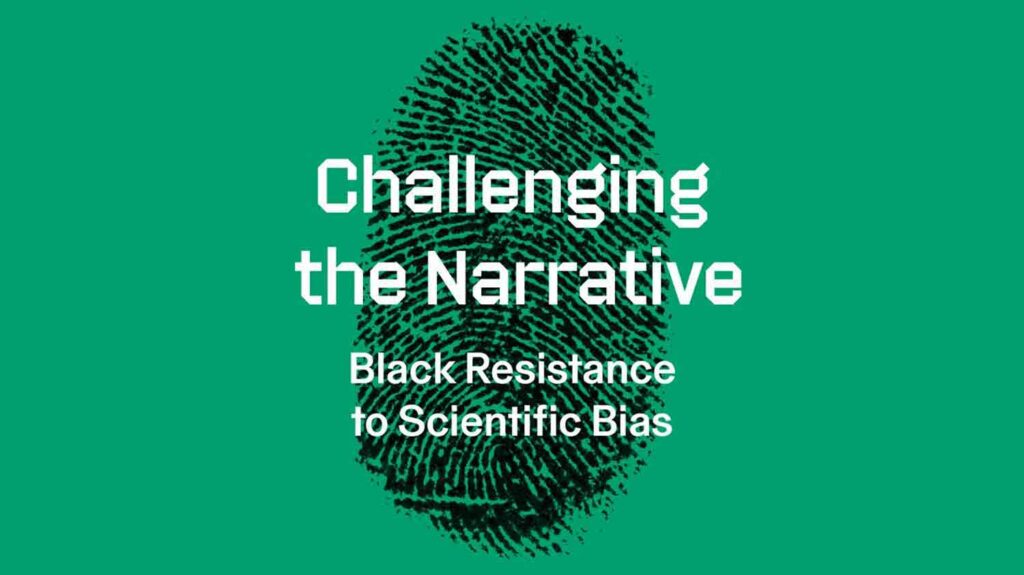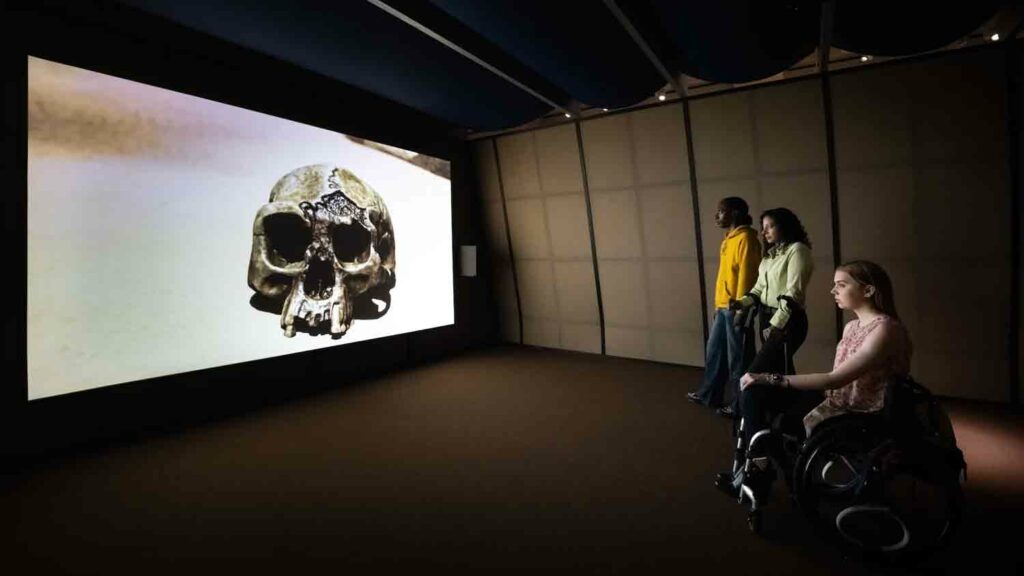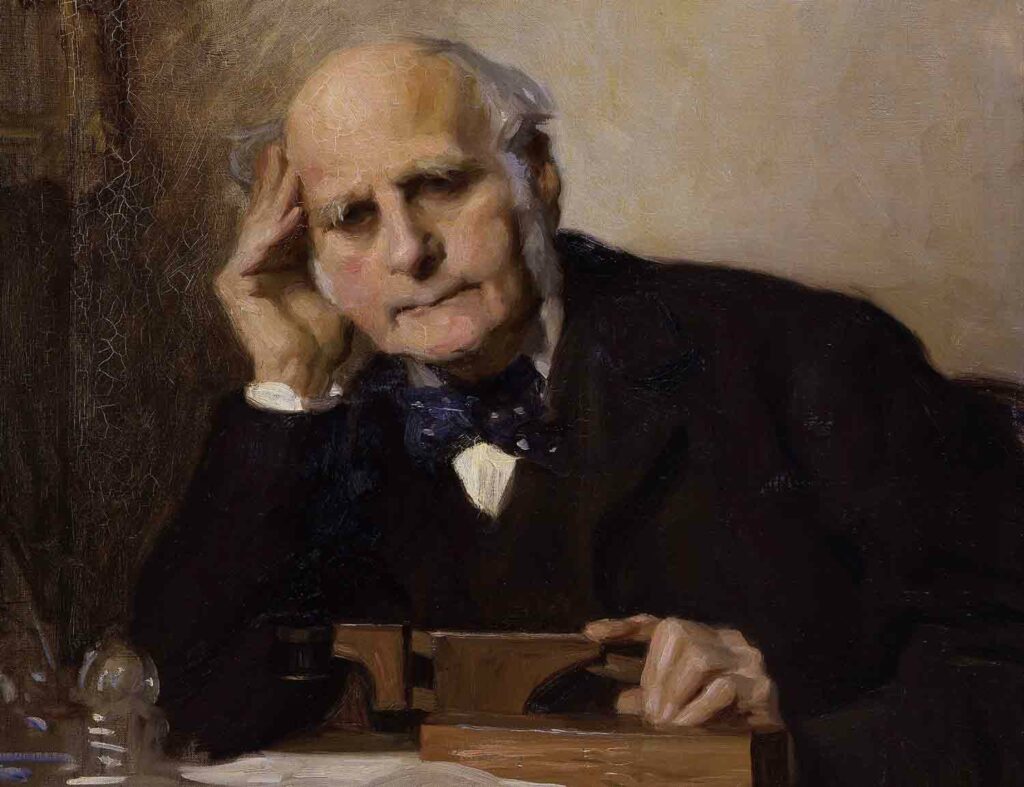
The Black Cultural Archives (BCA), based on Brixton’s Windrush Square, is joining other institutions by celebrating Black Futures Month this October as well as Black History Month.
Part of the celebration is a new exhibition that opened at the BCA today (5 October). It looks at how Black communities have resisted the consequences, some of which are still with us today, of so-called science that is based on the false belief that there are innate differences between races.
Challenging the Narrative looks at four areas: beauty, intelligence, mental health and policing.
It is based on an exhibition created by the Wellcome Foundation, a world-renowned London-based scientific museum and library that explores health and human experience.
This exhibition, Genetic Automata, consists of video works by artists Larry Achiampong and David Blandy exploring race and identity in an age of videogames and DNA ancestry.

The four films in the series investigate where deeply ingrained ideas about race come from and the role that science has played in shaping these perceptions.
The exhibition premieres _GOD_MODE_, the latest film in the series, commissioned by the Wellcome Collection, the Black Cultural Archives and Wellcome Connecting Science. It is open at the Wellcome Collection on Euston Road until 11 February.
_GOD_MODE_ will also be a highlight of the BCA exhibition. It is a reflection on the legacy of Francis Galton, the Victorian academic who established eugenics as a scientific discipline at University College London in 1904.

The film considers the roots and implications of scientific racism, exploring how eugenic practices have left their mark across society. It also presents hopes for an alternative future.
It has two parts, the first is voiced by Blandy, who is white and middle class, born in London, of English heritage.
He mentions intelligence tests, racist and sexist discrimination, and the systemic use of sterilisation across the world, all under the guise of objective science.
His poignant testimony is accompanied by footage from UCL’s science collections and features some of the instruments Galton used to measure and categorise people, a selection of which are displayed alongside the film.
In the second half of the film, Achiampong, who is Black and working class, born in London of Ghanaian heritage living in Essex, delivers a lyrical yet powerful look at the struggle against injustice.
He suggests that what is needed is not simply solidarity, but real change, which would necessitate the demolition of generations of privilege.
This part of the film takes viewers into an immersive videogame environment following a large spider as it travels different landscapes – a reference to the West African folklore’s shapeshifting demi-god Anansi.
“Sadly, scientific bias continues to have negative connotations for the Black community and this exhibition helps us chart this history, as well as the history of community resistance,” said BCA managing director Lisa Anderson.
“We hope this exhibition can inspire all of those interested in racial equality to continue the fight and to shine a light on the importance of examining the connection between culture and science.”
Challenging the Narrative is on at the BCA until 28 January.
















